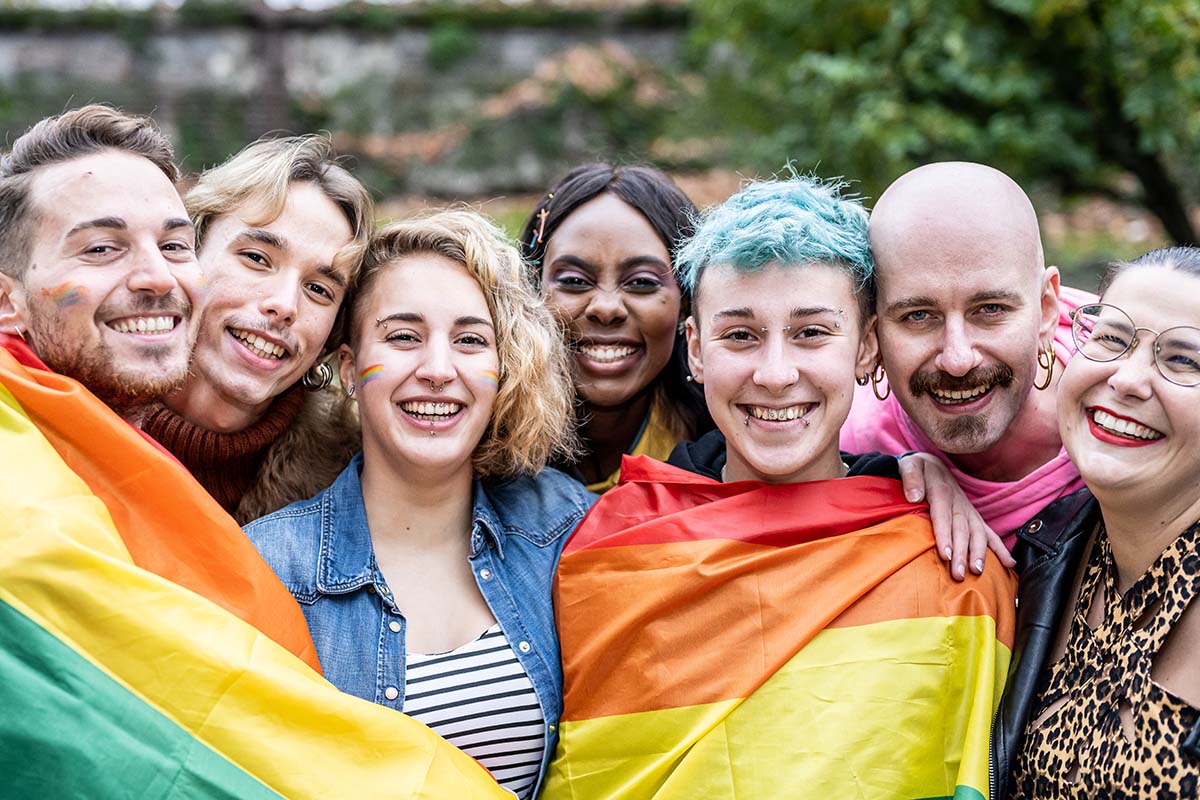Mental health refers to our psychological state of well-being. Our mental well-being impacts how we think, feel, and act as we navigate daily life. It influences how we manage stress, how we interact with others, and how we make decisions. Research indicates that individuals who identify as part of the LGBTQ+ community suffer from poorer mental health than their heterosexual counterparts. Depression is among the most common mental health disorders in America. Still, the rates of reported depression among the LGBTQ+ community are estimated to be nearly double that of the general population. Harmony Hills is proud to provide an inclusive depression treatment program in Florida.
At Harmony Hills, we understand that many LGBTQ+ individuals face obstacles to good mental health care. We provide comprehensive LGBTQ+ mental health treatment in a safe and welcoming environment. To see if our depression treatment program is right for you, contact us at 855.494.0357.
Understanding Mental Health in the LGBTQ+ Community
Mental health is an often overlooked part of our well-being, but it should not be. Having a bad mental health day can mean anything from not tending to simple tasks to not getting out of bed. While members of the LGBTQ+ face many of these same challenges, they also experience additional ones that intensify the symptoms of depression. Examples include:
- Having to cope with stigma, discrimination, or violence
- Low self-worth because of internalized homophobia
- Stress associated with the coming-out process
- Being rejected by friends or family
- Feeling isolated and lonely
- Having to deny or hide their true identity
- Being bullied
Many of these experiences are traumatic. Further, LGBTQ+ individuals are often faced with these experiences daily, which equates to experiencing ongoing trauma. Ongoing trauma that goes untreated can have profound impacts. Along with depression, common mental health disorders within the LGBTQ+ community include:
- PTSD
- Anxiety
- Eating disorders
- Self-harm or self-injurious behaviors
Isolation and withdrawal are tactics frequently used to avoid harassment, ridicule, or rejection. The resulting feelings of loneliness and despair contribute to a significantly increased risk of suicide among the LGBTQ+ community. Turning to drugs, alcohol, or both to relieve psychological and emotional distress increases substance abuse and addiction rates.
Finding LGBTQ+ Mental Health Treatment
While there are some unique mental health risks and concerns for treating individuals who identify as LGBTQ+, it needs to be emphasized that these individuals also have many of the same concerns and challenges as the general population. At Harmony Hills, we are mindful of taking a holistic, person-centered approach that focuses on each client as a unique individual. We take the time needed to get to know each of our clients and their goals for treatment so that we can create a treatment plan best suited to their needs. Treatment plans can include therapies such as:
- Trauma therapy
- Individual therapy
- Group therapy
- Family therapy
- Relapse prevention therapy
- 12-step program therapy
Harmony Hills relies on the most recent research to ensure that we provide all of our clients with the best chance for a successful recovery. We understand that traditional treatment centers have historically been predominantly heteronormative. In our efforts to provide a safe and inclusive treatment environment, we:
- Educate our staff to foster inclusivity
- Immediately address inappropriate behaviors of peers
- Implement training requirements for staff
- Implement policies that recognize the general needs of LGBTQ+ clients
- Design programs to address the specific mental health needs of LGBTQ+ clients
Individuals in the LGBTQ+ community tend to have better and more effective mental health treatment experiences when their identities are validated and recognized and their care is focused on their unique and often nuanced needs.
What Makes LGBTQ+-Focused Mental Health Treatment Different?
LGBTQ+ mental health treatment is unique in many ways. This particular segment of the population has often faced isolation, discrimination, and stigma on a daily basis due to their identity. As such, it is incredibly important that LGBTQ+ individuals seeking mental health treatment receive care from providers that understand and are sensitive to the issues they face.
LGBTQ+ mental health treatment involves addressing the unique obstacles LGBTQ+ individuals may face, such as finding acceptance in their family and community, dealing with minority stress due to discrimination, and navigating coming out. Treatments often involve providing support, education, advocacy, and intervention to help LGBTQ+ individuals cope with their mental health issues.
It is also important for LGBTQ+ individuals to find a therapist that has experience working with LGBTQ+ clients and understands the unique needs of LGBTQ+ individuals. It is essential that LGBTQ+ clients feel comfortable, accepted, and respected by their therapist so they can get the most out of their treatment.
Harmony Hills Provides LGBTQ+ Mental Health Treatment
Because of long-standing discrimination, finding mental health treatment programs that address those in the LGBTQ+ community’s specific needs was challenging. Thankfully, shifts in perceptions about gender and sexuality have helped create a more accepting society, making it easier for LGBTQ+ individuals to seek the treatment they need openly.
Harmony Hills is proud to be a leader in providing comprehensive, effective mental health treatment inclusive to all. Our residential treatment program for mental health allows clients to become fully immersed in therapy in a safe, welcoming environment. To learn more about our programs, call 855.494.0357 or fill out our online form.







